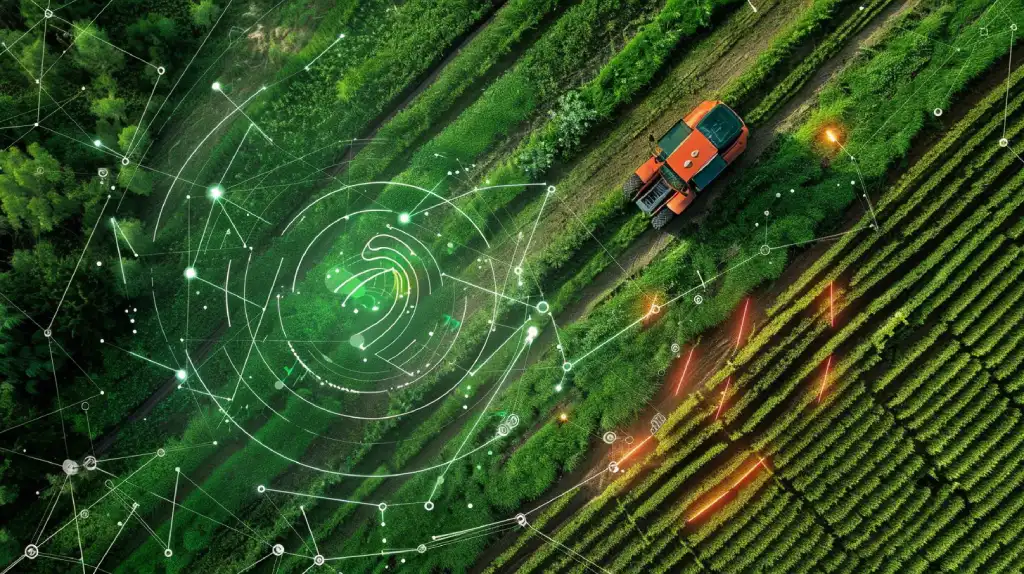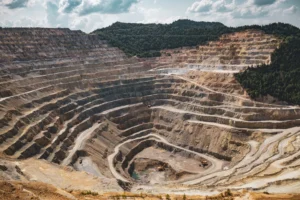The impact of sustainable agriculture is reshaping our world in ways many don’t realize. Did you know that sustainable farming practices can reduce agricultural emissions by up to 40%?
Also, combining sustainable methods can increase crop yields by 20% and reduce water usage by 30%. These statistics show the impact sustainable agriculture can have on our environment and food systems.
Impact of Sustainable Agriculture - Statistics
Water Efficiency
Sustainable agriculture can increase water-use efficiency by up to 50%, conserving vital resources and making sure crops receive the necessary hydration without waste.
Biodiversity
Farms practicing sustainable methods can host up to 30% more species of plants and animals compared to conventional farms, improving ecosystem health and resilience.
Economic Savings
Farmers who adopt sustainable practices can reduce input costs by 20-40% due to lower expenses on chemical fertilizers and pesticides.
Energy Use
Sustainable farms can reduce energy consumption by 20% through practices such as renewable energy integration and energy-efficient machinery.
Soil Health
Sustainable farming practices can increase soil organic matter by 15%, improving soil structure, fertility, and water retention.
Impact of Sustainable Agriculture

Which is the Impact Associated with Sustainable Agriculture
The impact of sustainable agriculture affects multiple dimensions of society and the environment. It improves food security by securing a stable supply of nutritious food.
Economically, it benefits farmers by reducing input costs and increasing crop yields.
Socially, it supports rural communities through job creation and enhanced livelihoods.
Environmentally, sustainable agriculture reduces pollution, conserves water, and enhances biodiversity.
These combined impacts create a more resilient and sustainable food system that can adapt to future challenges.
Impact of Sustainable Agriculture on the Environment
The environmental impact of sustainable agriculture is significant. By reducing reliance on chemical fertilizers and pesticides, sustainable farming reduces soil and water pollution.
Practices such as crop rotation, cover cropping, and no-till farming improve soil health and increase carbon sequestration, reducing climate change.
Water-efficient methods reduce strain on water resources, while increased biodiversity promotes ecosystem stability.
Overall, sustainable agriculture promotes a healthier environment that supports diverse plant and animal life.
Sustainable Agriculture Impact on Agriculture
Sustainable agriculture changes traditional farming practices by combining environmentally friendly techniques that improve productivity.
It focuses on soil health, water conservation, and biodiversity, leading to more resilient and productive agricultural systems. Sustainable practices reduce the risk of crop failure due to pests and extreme weather, securing more consistent yields.
By lowering input costs and improving resource efficiency, sustainable agriculture makes farming more economically viable.
This change towards sustainability secures the long-term viability of agriculture, supporting both current and future food needs.
Effects of Sustainable Agriculture

Global Food Crisis and Sustainable Solutions
The global food crisis is a big issue, and sustainable agriculture offers sustainable solutions. By adopting practices like crop rotation, organic farming, and agroforestry, we can produce more food on less land while preserving soil health and biodiversity.
These methods also reduce dependency on chemical inputs, making food production safer and stronger.
Sustainable Agricultural Practices
Sustainable farming practices include crop diversification, conservation tillage, and integrated pest management. These practices help maintain soil fertility, reduce erosion, and control pests naturally.
By focusing on resource efficiency and environmental health, sustainable farming secures long-term productivity and ecosystem balance.
Climate Change Reduction Through Agriculture
Agriculture plays a big role in climate change reduction. Practices such as no-till farming, cover cropping, and agroforestry sequester carbon in the soil and reduce greenhouse gas emissions.
These techniques fight climate change and also improve farm resilience to extreme weather events, securing stable food production.
Food Security and Nutrition
Sustainable agriculture boosts food security by increasing the availability of nutritious food. Methods such as organic farming and permaculture focus on soil health, leading to more nutrient-dense crops.
This approach helps face malnutrition and provides communities with healthier food options, supporting overall public health.
Agriculture and Economic Development
Sustainable agriculture promotes economic growth and rural development. By creating jobs and supporting local economies, sustainable farming revitalizes rural areas.
Programs that promote smallholder farmers to adopt sustainable practices can increase their incomes and improve livelihoods, promoting community well-being.
Consumer Impact on Food Sustainability
Consumers play a important role in promoting food sustainability. By choosing sustainably produced food, supporting local farmers, and reducing food waste, consumers can drive demand for sustainable practices.
Educating the public about the benefits of sustainable agriculture empowers them to make informed choices that support a healthier planet.
Building a Sustainable Food Ecosystem
Building a sustainable food ecosystem requires teamwork among farmers, policymakers, and consumers.
Initiatives like farm-to-table movements, community-supported agriculture, and sustainable food certifications create a connected system that focuses on environmental health, economic sustainability, and social fairness.
Successful Sustainable Farming Examples
There are numerous examples of successful sustainable farming. For example, in India, the use of organic farming techniques has converted dry regions into productive agricultural lands.
In the United States, regenerative agriculture practices have restored soil health and increased biodiversity on large-scale farms. These examples show the feasibility and benefits of sustainable agriculture.
Overcoming Challenges, Promoting Sustainability
Despite its benefits, sustainable agriculture faces challenges such as policy barriers, market access, and financial limitations. Overcoming these challenges requires supportive policies, investment in research, and education.
By tackling these issues, we can promote sustainable practices and secure a strong and balanced food system for the future.
Sustainable Path to Sustainable Farming

The primary goal of sustainable agriculture is to meet the current and future food needs without compromising the health of the environment or the well-being of future generations. This involves practices that maintain and improve soil fertility, reduce pollution, conserve water, and enhance biodiversity.
Sustainable agriculture is crucial because it tackles the challenges presented by traditional farming methods that can harm the environment and exhaust natural resources. By promoting practices that reduce environmental impact, sustainable agriculture helps reducing climate change, preserve biodiversity, and protect water resources.
E-Farming and Regenerative Farming Help in Sustainable Agriculture
E-farming uses sustainable technology to improve the efficiency and sustainability of agricultural practices. Using data analytics and precision farming, it helps farmers make smart decisions about crop management, water use, and pest control.
Regenerative farming, on the other hand, focuses on restoring and improving soil health through practices such as cover cropping, crop rotation, and no-till farming




